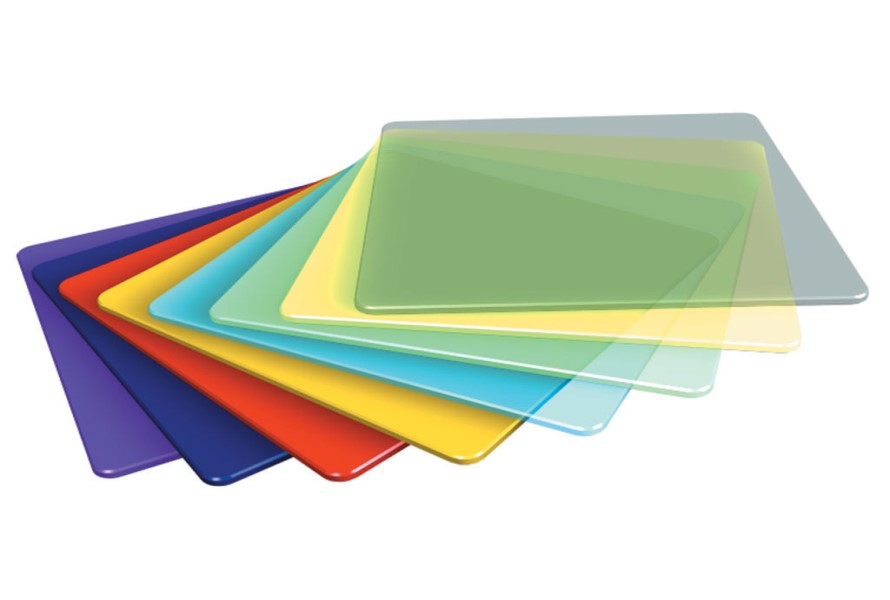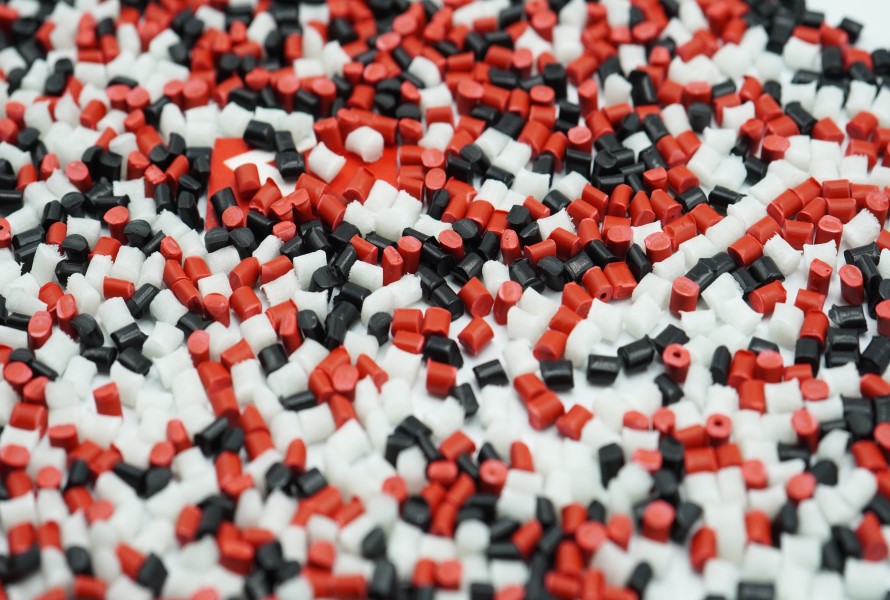Polypropylene plastic sheets are a versatile and cost-effective material suitable for many applications in different industries. Let's have a quick understanding of this thermoplastic, why you should choose it for your products, and explore its most applied fields in the article right below! Follow along!
1. About polypropylene plastic sheets
1.1. What are they?
Polypropylene plastic sheets are a thermoplastic "addition polymer" formed by mixing propylene monomers. The material is lightweight but strong. It's also elastic, fatigue, and chemical resistant and easy to process, making it an ideal option for various fields. It benefits our lives, from food packaging products to industrial applications. The PP plastic sheet can replace more expensive thermoplastics without changing the final performance. Therefore, many manufacturers prefer it as a good source of material.
Read more: What is Polypropylene Plastic? All About Its Outstanding Properties.

1.2. Why should you choose polypropylene plastic sheets?
A polypropylene plastic sheet is usually lightweight (its concentration is only 0.91g/cm3) and possesses a very decreased moisture absorption. Thus, it can enhance the stability of goods and help against bacteria. Besides, the acid and chemical durability of pp plastic sheet allows it to be used in producing industrial acid tanks and abrasion-resistant closures.
In addition, polypropylene plastic sheets are readily formed, shaped, and vacuum-created. Therefore, manufacturers can easily employ it in construction fields and create higher items in various industries, including automobiles. Furthermore, plastic comes with a lower price but can maintain the same performance as other materials, making it a cost-effective solution for businesses.
1.3. Types of polypropylene plastic sheets
Each type of pp plastic sheet has its own outstanding properties suitable for specific applications. Let's learn about its categories before making a decision!
| Type of polypropylene plastic sheet |
Outstanding features |
Ideal for |
| Homopolymer |
This single type of propylene polymer has great high-temperature performance and chemical resistant ability |
automotive parts, chemical storage tanks, and laboratory equipment |
| Copolymer |
This combination of propylene and other monomers provides better impact resistance. |
automotive bumpers, food packaging, and containers |
| Random Copolymer |
Its unique structure enhances clarity and improves the impact strength of the final products. |
clear lids, cups, and food containers |
| High-Impact |
It has good chemical resistance and can withstand impact |
luggage, industrial bins, and automotive interior parts
|
2. Common applications of polypropylene plastic sheets
2.1. Electrical and tools manufacturing
The material is well-known for its insulation or high electrical resistance; thus, it's ideal for electrical components, such as cables, etc.
2.2. Automotive industries
Polypropylene plastic sheets have excellent impact and chemical resistance, making them an ideal candidate for car interior and exterior components. Some of their common applications are bumpers, dashboards, and door panels.
2.3. Construction
Since the material shows excellent capability of withstanding harsh weather and conditions with great durability, it's commonly used in the construction sector. You can see vapor barriers, roofing, or wall cladding made from PP.
2.4. Medical
As mentioned above, non-food packing applications of polypropylene plastic sheets include medical ones. Besides, PP's great sterility and chemical and bacterial resistance allow the material to be used for disposal vials and syringes, pill containers, intravenous bottles, Petri dishes, and diagnostic devices.
3. EuroPlas - A supplier of polypropylene engineering plastic compound

Polypropylene engineering plastic compound from EuroPlas is a time-saving and cost-efficient method as the company provides you with a full-function-in-one-material solution for your final products. Polypropylene is combined with other additives and reinforcements to optimize its special properties.
Here is the list of our best Polypropylene engineering plastic compounds:
It's a combination of PP resin, glass fiber, and other specific additives, increasing its flexural modulus and tensile strength. Therefore, it provides additional strength to automobile applications, electric appliances, and furniture. EuroPlas PP glass fiber compound comes with different densities of glass fiber, such as ECP PP 10GF (10% GF), ECP PP 20GF (20% GF), ECP PP 30GF (30% GF), ECP PP 40GF (40% GF), and ECP PP 50GF (50% GF).
With this compound, Polypropylene is mixed with glass beads and other additives, making it more compressive resistant and thermally stable and improving the mechanical stress under load. Besides, since the compound can deliver more stiffness and transparent shaping, it's an ideal choice in home interiors, home appliances, and car interiors.
PP conductive compound, a perfect combination of PP resin and carbon black conductive, is another highlighted product from EuroPlas. The material is lightweight and machinable with the injection molding process. Thus, it's applied in many applications, such as cable jackets, electrical equipment housing, and electronic components.
EuroPlas PP flame retardant compound consists of PP resin and halogen/non-halogen flame retardant, creating a material with good flame resistance and high performance. The products have different levels of UL94-standard flame retardants: 5VA, 5VB, V0, V1, V2. PP flame retardant compound is widely used in supplies, including insulation, roofing, and flooring. It's also a popular option in the electrical and electronic sectors to produce circuit boards, cables, and plastic coverings for appliances.
The compound combines PP resin with BaSO4 and suitable additives, lending the material the ability to reduce shrinkage and deformation in high-temperature settings and resist heat, chemicals, and impact. EuroPlas PP BaSO4 compound is suitable for producing sanitary equipment, house appliances, or water filter equipment.
EuroPlas produces PP talc compound based on the PP resin talc powder and appropriate additives. The material has better stiffness, flexural modulus, and strength. Plus, it lessens the tendency to creep in increasing temperature environments and improves heat distortion temperature and dimensional stability. Thus, it's ideal for products with the requirements of good durability and high heat resistance (120-130oC) for a long time.
Don’t hesitate to contact
EuroPlas for the best price of PP compound and other engineering materials!